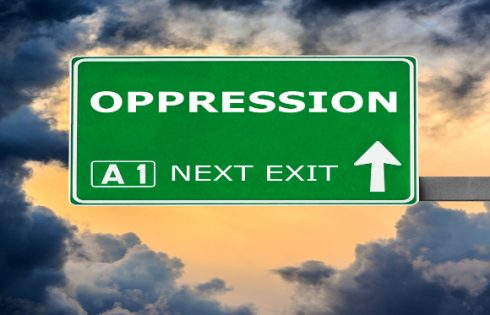 The average college student doesn’t spend a lot of time thinking about NPR–even when the GOP’s push to defund and James O’Keefe’s sting operation have put the public broadcasting station in the news. We’re not anywhere near its target demographic: the median age of its on-air listeners is 50. Why would anyone in college even care what happens to the home of the Diane Rehm show?
The average college student doesn’t spend a lot of time thinking about NPR–even when the GOP’s push to defund and James O’Keefe’s sting operation have put the public broadcasting station in the news. We’re not anywhere near its target demographic: the median age of its on-air listeners is 50. Why would anyone in college even care what happens to the home of the Diane Rehm show?
Two reasons: one economic, and one principled.
The economic reason is quite simple. The United States today faces a massive, unsustainable budget deficit, the burden of which willl be borne disproportionately by our generation in the form of higher taxes, reduced economic growth, and drastically lower global competitiveness. Thus, college students in particular have significant reason to care about restoring fiscal discipline.
Defunding NPR and the Center for Public Broadcasting would be a step in that direction—though, admittedly, a small one. Indeed, no one believes—Colin Powell’s assertion to the contrary—that removing NPR’s federal funding would conclusively “fix” our budget problems. However, it’s undeniable that paring down non-essential discretionary spending items would have a significant cumulative effect. As Ethics and Public Policy fellow James Capretta has suggested, cutting this and similar programs could yield savings of up to $25 billion.
We’re reminded of the urgent need to do so almost on a daily basis. Just yesterday, Bill Gross, the head of Pacific Investment Management Co. (PIMCO) announced that his bond fund—which happens to be the largest in the world—would dump all its holdings of United States debt due to concerns over Treasury yields. It is only a matter of time before more investment firms—and perhaps even countries—follow suit. Thus, cutting support for what Capretta calls “low-value” programs, in addition to enacting comprehensive reform of entitlements and health care, should be a priority.
The principled reason for defunding NPR is just as intuitive. Given that taxpayers of every political stripe supports NPR, one would expect—if not demand—that it exhibit some semblance of ideological variety. As everyone knows, though, this is patently not the case. Indeed, Ron Schiller’s statement that Tea-Partiers “believe in white, middle America, gun-toting” came as no surprise, because NPR’s liberal tilt has been extensively documented.The case of Juan Willams, however, is particularly damning—even by NPR’s standards.
Williams was never quite at home at NPR. A political moderate who sometimes identified with conservative positions, he was always viewed with suspicion by NPR’s executives, who in 2009 actually asked Fox to cease listing him an NPR contributor on-screen. The last straw came after Williams stated that he “gets nervous” when he sees “people who are in Muslim garb” on a plane. He was promptly fired without any opportunity for appeal.
This would not be so outrageous had NPR fired correspondent Nina Totenberg after her 1995 comment on PBS that if if there was “retributive justice” Sen. Jesse Helms would “get AIDS from a transfusion, or one of his grandchildren will get it”, or had it done the same to Andrei Codrescu, who in 1995 suggested that “the evaporation [during the Rapture] of 4 million who believe this crap would leave the world an instantly better place.” True to form, it didn’t. Only Williams was sacked for his “offensive” remarks, a move perfectly consistent with the ideological makeup of NPR’s staff and board of directors.
Our government must stop subsidizing a particular political perspective, especially one that makes such a concerted effort to reject other approaches. Such violates the taxpayers’ trust. And if the concept of fairness makes federal support for NPR unpalatable, the budget realities renders it intolerable.
College students have much more at stake in this debate than they may have thought. One only hopes that they tune in.
Judah Bellin is a columnist for the Cornell Daily Sun. He is a member of the Student Free Press Association.
Like The College Fix on Facebook / Follow us on Twitter





Please join the conversation about our stories on Facebook, Twitter, Instagram, Reddit, MeWe, Rumble, Gab, Minds and Gettr.